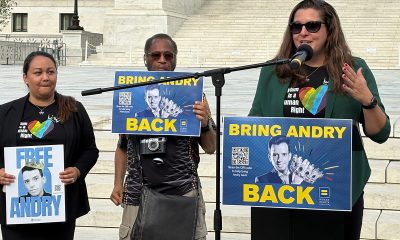U.S. Federal Courts
Fired Human Rights Campaign president sues, alleges racial discrimination
“Black and Brown people are treated differently and have been for years in this organization”
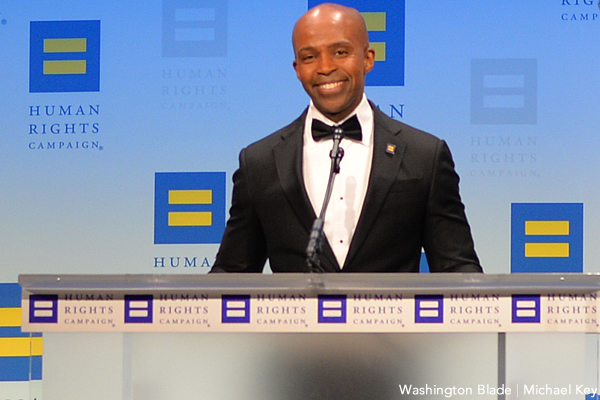
WASHINGTON – Alphonso David, the former president of the Human Rights Campaign terminated by the board after he was ensnared in the Gov. Andrew Cuomo scandal, sued the nation’s leading LGBTQ group on Thursday, arguing he was fired as a result of racial discrimination “amid a deserved reputation for unequal treatment of its non-white employees” and was explicitly told he was paid less because he’s Black.
David, speaking with the Washington Blade on Thursday during a phone interview, said he came to the decision to file the lawsuit after practicing civil rights law for 20 years and “never thought that I would be a plaintiff.”
“But I’m in this chair, I was put in this position,” David said. “And as a civil rights lawyer, I couldn’t look the other way. It would be anathema to who I am and it would undermine my integrity and purpose for the work that I do. And so I have to go through and make a very, very difficult personal decision to file this lawsuit.”
The lawsuit, filed Thursday in the U.S. District Court for the Eastern District of New York, accuses the Human Rights Campaign of violating new state and federal laws for terminating David, who was the organization’s first person of color and Black person to helm the LGBTQ group in its 40-year history. The lawsuit also contends the Human Rights Campaign contravened equal pay law in New York by paying David less than his predecessor, Chad Griffin.
After a public dispute with the board in September amid an independent investigation of his role in the Cuomo affair, the Human Rights Campaign boards unceremoniously fired David and shortly afterward announced a still ongoing search for a new president. David was named nearly a dozen times in the damning report by New York Attorney General Letitia James, suggesting David assisted in efforts by Cuomo’s staff to discredit a woman alleging sexual misconduct in Cuomo’s office. David has consistently denied wrongdoing.
But the lawsuit is broader than the termination and describes an environment at the Human Rights Campaign, which has faced criticism over the years for being geared toward white gay men, as a workplace where “non-white staffers were marginalized, tokenized, and denied advancement to high-level positions.” After a speech David gave on issues of race and indifference in the context of HRC’s mission, the lawsuit claims a board member complained about him referring too much to being Black, but faced no penalty from the organization.
Specifically named in the report is Chris Speron, Senior Vice President of Development, who expressed concern about “alienating” white donors and specifically “white gay men” after David issued a statement on the importance of Black Lives Matter after the killing of George Floyd by Minneapolis police officers. The lawsuit claims Speron pushed David to “stop mentioning in his public statements and remove from his bio the fact that he was HRC’s first Black President in its history.” Speron also was critical of hiring a Black-owned consulting firm and “criticized a Black staff member for attending a meeting with the consulting firm without a white person present,” the lawsuit claims. Speron couldn’t immediately be reached for comment to respond to the allegations.
In terms of equal pay, the lawsuit says HRC’s co-chairs informed David he was underpaid compared to his predecessor because he’s Black. But the lawsuit also acknowledges in 2021, just before news broke about the Cuomo report, the Human Rights Campaign in recognition of David’s work renewed his contract for five additional years and gave him a 30 percent raise.
David, speaking with the Blade, said he was in “shock” upon experiencing these alleged incidents of racism, maintaining he had kept quiet at the time out of concern for the greater good of the aims of the Human Rights Campaign.
Asked whether as president he considered implementing racial sensitivity trainings for his subordinates, David said “yes,” but added many trainings aren’t effective and said the power in organizations like the Human Rights Campaign is often spread out.
“There are people within the organization that have a fair amount of board support because they bring in the money because they are responsible for overseeing the money,” David added.
Joni Madison, interim president of the Human Rights Campaign, said in a statement after the lawsuit was filed the organization is “disappointed that Alphonso David has chosen to take retaliatory action against the Human Rights Campaign for his termination which resulted from his own actions.”
“Mr. David’s complaint is riddled with untruths,” Madison said. “We are confident through the legal process that it will be apparent that Mr. David’s termination was based on clear violations of his contract and HRC’s mission, and as president of HRC, he was treated fairly and equally.”
Madison adds the individuals accused of racism in the lawsuit “are people of color and champions of racial equity and inclusion who provided support and guidance as Mr. David led the organization,” without naming any specific individual. The boards for the Human Rights Campaign and the Human Rights Campaign Foundation who made the decision to terminate David, were comprised of seven independent directors, five of whom were Black.
The racist environment, the lawsuit says, culminated for David in September 2021 amid an independent investigation of his role in the Cuomo affair conducted by the law firm Sidley Austin LLP at the behest of the organization. According to the lawsuit, the board co-chairs contacted David late at night before Labor Day weekend to tell him to resign by 8 a.m. the next morning or be terminated for cause. When David asked whether the Sidley Austin investigation had made any findings against him, or if a report would be issued explaining what he was accused of doing wrong, the board co-chairs refused to say, the lawsuit says.
As is publicly known, David declined to resign and took to Twitter to complain about the board, which subsequently issued a statement disputing his claims. He was then fired “for cause” under his contract.
The termination, the lawsuit says, signified differential treatment of David because he is Black, taking note the Human Rights Campaign under his predecessor had “endured repeated, serious, scandals — many of which involved HRC’s mistreatment of Black and other marginalized individuals,” but Chad Griffin was never terminated “for cause.”
Both the Human Rights Campaign Foundation board and the Human Rights Campaign board voted to terminate David. A source familiar with the vote said no one voted “no” in either case. The campaign board vote was unanimous and there were two abstentions in the foundation board vote, the source said.
The source familiar with the vote said David never told the Human Rights Campaign he was helping Cuomo during his time as HRC president nor did he disclose he was talking to the New York attorney general. The first board members heard about it was when it hit the press, the source said.
Meanwhile, the lawsuit says David “performed extremely well as HRC president, by any measure,” navigating the organization through the coronavirus epidemic and boosting fundraising by 60 percent. (The Blade has not yet verified this claim.) It should be noted the Human Rights Campaign cited coronavirus as the reason it laid off 22 employees, as reported at the time by the Blade.
David, asked by the Blade how he sees the alleged racist culture at Human Rights Campaign infused in his termination, said “Black and Brown people are treated differently and have been for years in this organization,” citing a “Pipeline Report” leaked to the press in 2015 documenting an environment in which employees of color were unable to thrive.
“And so, the fact that I’m being treated differently now, in the fact that a different standard is being applied to me is just simply consistent with what they’ve always done,” David said. “You know, we go back to the Pipeline Report: Imagine if I was leading the organization at the time, and there was a report that was issued, that said that anti-Semitic remarks were being made within the organization, and that women were being discriminated against within the organization or some other marginalized group and that one of the senior vice presidents used a derogatory remark. Do you think I would still be at the organization or would they have fired me?”
David concluded: “There’s a different standard and a double standard that they’ve applied for decades, and I’ve just now been one casualty — another in a long series of casualties based on their systemic bias and discrimination.”
Among the requests in the prayer for relief in the complaint is a declaration the Human Rights Campaign’s actions violated the law; restoration of David to his position as president; an award of the compensation he would have received were he still on the job as well as punitive damages. Asked by the Blade whether any settlement talks have taken place, David said that wasn’t the case and pointed out the lawsuit was recently filed.
Legal experts who spoke to the Blade have doubted the validity of a review by Sidley Austin on the basis it was among the legal firms agreeing in 2019 to help with the Human Rights Campaign entering into litigation to advance LGBTQ rights, an agreement David spearheaded upon taking the helm of the organization.
David, in response to a question from the Blade, said the independent investigation into his role in the Cuomo affair “is a sham and I believe it was a sham,” citing the lack of transparency of findings.
“One of the first instances that caused me concern,” David said, “is I suggested to the organization that we conduct an independent review, and they came back to me and said, ‘Here’s our press release history,’ and the press release never mentioned that I actually suggested that they do this review. And when I challenged them on that, they told me that they thought it would be better for the press to review a complaint or receive a statement that showed that they were bringing this investigation as opposed to I’m recommending and push back even more. And then they said ‘Well, we will put in the statement that you are cooperating.’ So from the very beginning, they were not honest about what they were actually doing.”
Representing David in the lawsuit is the Chicago-based employment law firm Stowell & Friedman, Ltd. and and Chicago-based attorney Matt Singer. The case has been assigned to U.S. District Judge Eric Vitaliano, a George W. Bush appointee, an informed source familiar with the case said.
The lawsuit was filed in New York as opposed to D.C. because David is a New York resident and much of the discriminatory behavior took place in New York, the source said. The pay disparity alleged in the lawsuit is expressed in percentages as oppose to hard numbers pursuant to rules for the judiciary in New York, the source added.
U.S. Federal Courts
Immigration judge dismisses Andry Hernández Romero’s asylum case
Gay makeup artist from Venezuela ‘forcibly removed’ to El Salvador in March

An immigration judge on Tuesday dismissed the asylum case of a gay makeup artist from Venezuela who the U.S. “forcibly removed” to El Salvador.
The Immigrant Defenders Law Center represents Andry Hernández Romero.
The Los Angeles-based organization in a press release notes Immigration Judge Paula Dixon in San Diego granted the Department of Homeland Security’s motion to dismiss Hernández’s case. A hearing had been scheduled to take place on Wednesday.
Hernández asked for asylum because of persecution he said he suffered in Venezuela because of his sexual orientation and political beliefs. NBC News reported Hernández pursued his case while at the Otay Mesa Detention Center in San Diego.
The Trump-Vance administration in March “forcibly removed” Hernández and other Venezuelans from the U.S. and sent them to El Salvador.
The White House on Feb. 20 designated Tren de Aragua, a Venezuelan gang, as an “international terrorist organization.”
President Donald Trump on March 15 invoked the Alien Enemies Act of 1798, which the Associated Press notes allows the U.S. to deport “noncitizens without any legal recourse.” Hernández is one of the lead plaintiffs in a lawsuit that seeks to force the U.S. to return those sent to El Salvador under the 18th century law.
The Immigrant Defenders Law Center says officials with U.S. Immigration and Customs Enforcement and U.S. Customs and Border Protection claimed Hernández is a Tren de Aragua member because of his tattoos. Hernández and hundreds of other Venezuelans who the Trump-Vance administration “forcibly removed” from the U.S. remain at El Salvador’s Terrorism Confinement Center, a maximum-security prison known by the Spanish acronym CECOT.
Homeland Security Secretary Kristi Noem earlier this month told gay U.S. Rep. Robert Garcia (D-Calif.) during a House Homeland Security Committee hearing that Hernández “is in El Salvador” and questions about his well-being “would be best made to the president and to the government of El Salvador.” Garcia, along with U.S. Reps. Maxwell Alejandro Frost (D-Fla.), Maxine Dexter (D-Ore.), and Yassamin Ansari (D-Ariz.), were unable to meet with Hernández last month when they traveled to the Central American country.
“DHS is doing everything it can to erase the fact that Andry came to the United States seeking asylum and he was denied due process as required by our Constitution,” said Immigrant Defenders Law Center President Lindsay Toczylowski on Thursday in the press release her organization released. “We should all be incredibly alarmed at what has happened in Andry’s case. The idea that the government can disappear you because of your tattoos, and never even give you a day in court, should send a chill down the spine of every American. If this can happen to Andry, it can happen to any one of us.”
Toczylowski said the Immigrant Defenders Law Center will appeal Dixon’s decision to the Board of Immigration Appeals, which the Justice Department oversees.
The Immigrant Defenders Law Center, the Human Rights Campaign, and other groups on June 6 plan to hold a rally for Hernández outside the U.S. Supreme Court. Protesters in Venezuela have also called for his release.
“Having tattoos does not make you a delinquent,” reads one of the banners that protesters held.
U.S. Federal Courts
Federal judge blocks Trump’s trans military ban
Cites ‘cruel irony’ of fighting for rights they don’t enjoy

A federal judge in D.C. on Tuesday blocked President Donald Trump’s ban on transgender service members, which was scheduled to take effect on Friday.
U.S. District Judge Ana Reyes issued the preliminary injunction, saying the policy violates the Constitution.
“Indeed, the cruel irony is that thousands of transgender service members have sacrificed — some risking their lives — to ensure for others the very equal protection rights the military ban seeks to deny them,” Reyes wrote.
The legal challenge to Trump’s trans military ban executive, Talbott v. Trump, was brought by LGBTQ groups GLAD Law and National Center for Lesbian Rights.
Reyes found that the ban violates equal protection because it discriminates based on trans status and sex and because “it is soaked in animus,” noting that its language is “unabashedly demeaning, its policy stigmatizes transgender persons as inherently unfit, and its conclusions bear no relation to fact.”
The lead attorneys in the case are GLAD Law Senior Director of Transgender and Queer Rights Jennifer Levi and NCLR Legal Director Shannon Minter.
“Today’s decisive ruling speaks volumes,” said Levi. “The court’s unambiguous factual findings lay bare how this ban specifically targets and undermines our courageous service members who have committed themselves to defending our nation. Given the court’s clear-eyed assessment, we are confident this ruling will stand strong on appeal.”
Nicolas Talbott, a second lieutenant in the Army Reserves, and Erica Vandal, a major in the U.S. Army, are two of the 14 plaintiffs in the case. They spoke during a virtual press conference with Levi and Minter on Wednesday.
“Yesterday’s ruling is just such a tremendous step forward for transgender service members,” said Talbott.
Vandal added the ruling “clearly recognizes that transgender soldiers, sailors, airmen, and Marines have been serving openly as our authentic selves for nearly a decade in every capacity, at every echelon, in every theater and combat zone across the world, all while meeting and exceeding the same standards as every one else without causing any degradation or unit cohesion.”
Levi said Reyes’s ruling requires “the military to return to business as usual.”
The decision is stayed until 10 a.m. on Thursday. It is not immediately clear whether the Trump-Vance administration will challenge it.
“What the order does is stave off, put off any effect of the ban actually being implemented against any individuals,” said Levi.
U.S. Federal Courts
Appeals court hears case challenging Florida’s trans healthcare ban
District court judge concluded the law was discriminatory, unconstitutional
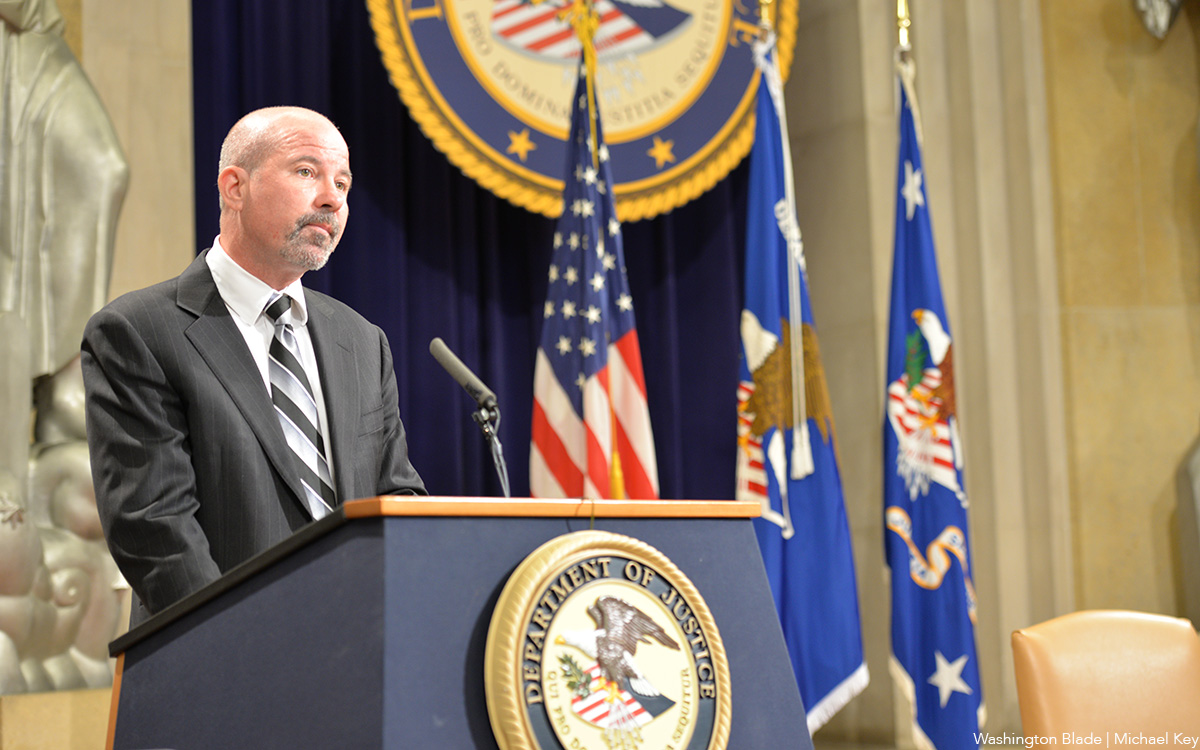
Parties in Doe v. Ladapo, a case challenging Florida’s ban on healthcare for transgender youth and restrictions on the medical interventions available to trans adults, presented oral arguments on Wednesday before the U.S. Court of Appeals for the 11th Circuit in Atlanta.
The case was appealed by defendants representing the Sunshine State following a decision in June 2024 by Judge Robert Hinkle of the U.S. District Court for the Northern District of Florida, who found “the law and rules unconstitutional and unenforceable on equal protection grounds,” according to a press release from the National Center for Lesbian Rights, which is involved in the litigation on behalf of the plaintiffs.
The district court additionally found the Florida healthcare ban unconstitutional on the grounds that it was “motivated by purposeful discrimination against transgender people,” though the ban and restrictions will remain in effect pending a decision by the appellate court.
Joining NCLR in the lawsuit are attorneys from GLAD Law, the Human Rights Campaign, Southern Legal Counsel, and the law firms Lowenstein Sandler and Jenner and Block.
“As a mother who simply wants to protect and love my child for who she is, I pray that the Eleventh Circuit will affirm the district court’s thoughtful and powerful order, restoring access to critical healthcare for all transgender Floridians,” plaintiff Jane Doe said. “No one should have to go through what my family has experienced.”
“As a transgender adult just trying to live my life and care for my family, it is so demeaning that the state of Florida thinks it’s their place to dictate my healthcare decisions,” said plaintiff Lucien Hamel.
“Members of the legislature have referred to the high quality healthcare I have received, which has allowed me to live authentically as myself, as ‘mutilation’ and ‘an abomination’ and have called the providers of this care ‘evil,’” Hamel added. “We hope the appellate court sees these rules and laws for what truly are: cruel.”
“Transgender adults don’t need state officials looking over their shoulders, and families of transgender youth don’t need the government dictating how to raise their children,” said Shannon Minter, legal director of NCLR. “The district court heard the evidence and found that these restrictions are based on bias, not science. The court of appeals should affirm that judgment.”
Noting Hinkle’s conclusion that the ban and restrictions were “motivated by animus, not science or evidence,” Simone Chris, who leads Southern Legal Counsel’s Transgender Rights Initiative, said, “The state has loudly and proudly enacted bans on transgender people accessing healthcare, using bathrooms, transgender teachers using their pronouns and titles, and a slough of other actions making it nearly impossible for transgender individuals to live in this state.”
Lowenstein Sandler Partner Thomas Redburn said, “The defendants have offered nothing on appeal that could serve as a valid basis for overturning that finding” by the district court.
“Not only does this dangerous law take away parents’ freedom to make responsible medical decisions for their child, it inserts the government into private health care matters that should be between adults and their providers,” said Jennifer Levi, senior director of transgender and queer rights at GLAD Law.
U.S. Federal Courts
9th Circuit upholds lower court ruling that blocked anti-trans Ariz. law
Statute bans transgender girls from sports teams that correspond with gender identity

The 9th U.S. Circuit Court of Appeals on Monday upheld a lower court’s decision that blocked enforcement of an Arizona law banning transgender girls from playing on public schools’ sports team that correspond with their gender identity.
Then-Gov. Doug Ducey, a Republican, in 2022 signed the law.
The Associated Press reported the parents of two trans girls challenged the law in a lawsuit they filed in U.S. District Court in Tucson, Ariz., in April 2023. U.S. District Judge Jennifer Zipps on July 20, 2023, blocked the law.
Arizona Superintendent of Public Instruction Tom Horne, who was named as a defendant in the lawsuit, appealed the ruling to the 9th Circuit. Democratic Attorney General Kris Mayes is not defending the law.
A three-judge panel on the 9th Circuit unanimously upheld Zipps’s ruling.
“We are pleased with the 9th Circuit’s ruling today, which held that the Arizona law likely violates the Equal Protection Clause and recognizes that a student’s transgender status is not an accurate proxy for athletic ability and competitive advantage,” said Rachel Berg, a staff attorney for the National Center for Lesbian Rights, in a press release.
NCLR represents the two plaintiffs in the case.
U.S. Federal Courts
Federal judge: Military can no longer prevent people with HIV from enlisting
Lambda Legal filed lawsuit on behalf of three servicemembers in 2022

A federal judge on Tuesday ruled the Pentagon can no longer prevent people with HIV from enlisting in the military.
Judge Leonie M. Brinkema of the U.S. District Court for the Eastern District of Virginia in Alexandria issued the ruling in a lawsuit that Lambda Legal filed against the Pentagon in 2022.
“Defendants’ policies prohibiting the accession of asymptomatic HIV-positive individuals with undetectable viral loads into the military are irrational, arbitrary, and capricious,” wrote Brinkema. “Even worse, they contribute to the ongoing stigma surrounding HIV-positive individuals while actively hampering the military’s own recruitment goals.”
Brinkema further stated “modern science has transformed the treatment of HIV, and this court has already ruled that asymptomatic HIV-positive service members with undetectable viral loads who maintain treatment are capable of performing all of their military duties, including worldwide deployment.”
“Now, defendants must allow similarly situated civilians seeking accession into the United States military to demonstrate the same and permit their enlistment, appointment, and induction,” added Brinkema.
Brinkema in April 2022 declared the military’s HIV restrictions unconstitutional.
Nicholas Harrison, a gay D.C. attorney and longtime member of the U.S. Army National Guard who has been living with HIV since 2012, challenged the policy. The Washington Blade reported the April 2022 decision ordered the Pentagon “to discontinue its policy of refusing to deploy and commission as officers members of the military with HIV if they are asymptomatic and otherwise physically capable of serving.”
Harrison became a first lieutenant in the D.C. National Guard on Aug. 5, 2022.
Isaiah Wilkins, one of the three plaintiffs in the lawsuit on which Brinkema ruled on Tuesday, was a member of the Georgia Army National Guard for two years before he left to attend the U.S. Military Academy Preparatory School. NBC News notes Wilkins was “separated” from the USMAPS after he took a medical exam “that revealed for the first time that he was HIV positive.”
“This is a victory not only for me but for other people living with HIV who want to serve,” said Wilkins in a Lambda Legal press release. “As I’ve said before, giving up on my dream to serve my country was never an option. I am eager to apply to enlist in the Army without the threat of a crippling discriminatory policy.”
U.S. Federal Courts
Attorneys in Alabama trans medical case turn over document
A U.S. District Judge ordered the lawyers to turn over the Q&A document, which was used to prepare for questions from a three-judge panel
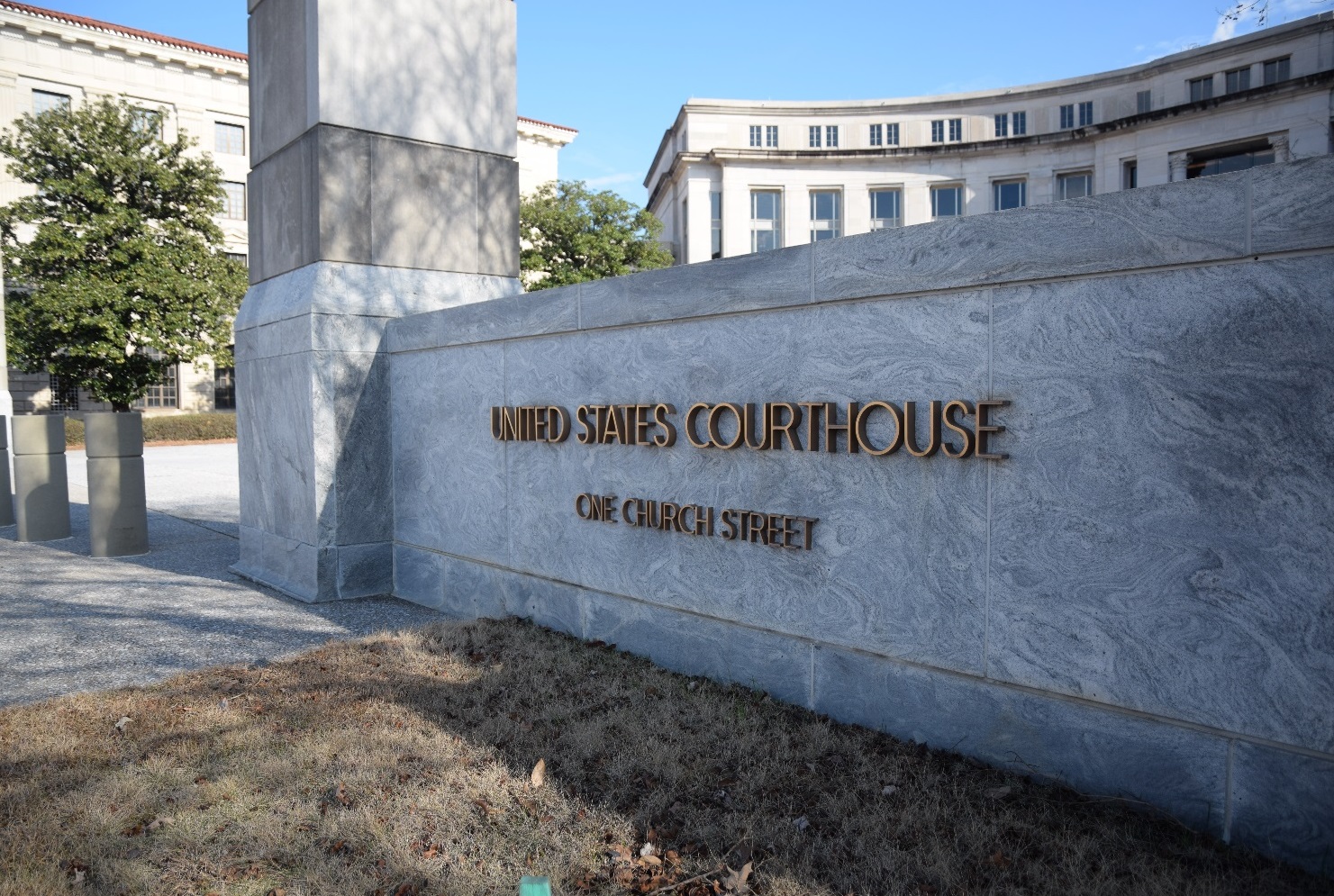
By Jemma Stephenson | MONTGOMERY, Ala. – Attorneys in an ongoing lawsuit against the state over Alabama’s gender affirming care for minors ban turned over a document Tuesday to a federal judge in an investigation of allegations of judge shopping.
U.S. District Court Judge Liles C. Burke ordered the lawyers to turn over the Q&A document, which the attorneys said was used to prepare the lawyers for questions from a three-judge panel investigating allegations that the attorneys manipulated the random assignment of cases to seek a judge favorable to their case.
The attorneys have lodged objections to the production of the document, arguing that it is covered by attorney-client privilege. Burke wants the document for an in camera review.
“Respondents submit the Q&A Document to confirm that their attorney-client privileged communications with their counsel were proper, to resolve this collateral issue as promptly as possible, and to dispense with the reputationally harmful allegations that they sought legal advice in furtherance of a crime or fraud,” the attorneys for the respondents wrote.
The plaintiffs sued Alabama in 2022 over a law making it a felony to prescribe hormones and puberty blockers in gender-affirming care. Burke, who heard the case, initially ruled for the plaintiffs and blocked the state law. But a three-judge panel of the 11th Circuit overturned his ruling last year. The plaintiffs are seeking a full review of the decision by the circuit.
Multiple challenges to the law were filed after Gov. Kay Ivey signed the bill into law in 2022. After multiple transfers of the cases, the attorneys withdrew the case and later refiled it. Burke said the moves gave the appearance of judge shopping, which the investigative panel said had occurred in a report in October.
In a separate Tuesday filing, the attorneys also objected to Burke’s order to turn over the document, objecting to the judge’s portraying of the panel’s findings.
“Even if the one or two narrow examples cited by the panel were really ‘inconsistencies and apparent misrepresentations’ (they are not), they do not support or justify this Court’s all-encompassing claim that the Panel ‘unanimously discredited’ the Walker Respondents’ testimony or otherwise ‘reject[ed] their testimony as unworthy of belief,’” they wrote.
The attorneys also pushed back against a Burke claim that an attorney had committed perjury before the panel. In an October report from the panel the judges wrote that one attorney had “deliberately misled” the panel about a phone call to a judge’s chamber, which Burke connected to perjury.
“There is no basis to conclude that no reasonable person could believe in good faith that he potentially perjured himself,” Burke wrote. “Likewise, there is no basis to conclude that an in camera review of the Q&A document would surely fail to turn up evidence that he intentionally lied to the court.”
The attorneys wrote that the claim of “perjury” is not supported by facts and referenced an earlier order. They also wrote that the panel did not wholly discredit their testimony and wrote that claims of a lack of candor were limited to one footnote.
“To be clear, however, Walker counsel’s candor on the whole is concerning,” the panel wrote in a footnote.
They wrote that claims of a prima-facie case only exists because of the panel’s findings, which had due-process violations. They wrote that some were denied a right to counsel and others were excluded from proceedings.
“Respondents continue to steadfastly maintain that they testified truthfully and honestly before the Panel and in subsequent submissions to this Court. There is no basis for this Court to assert that the Panel disbelieved or discredited Respondents’ testimony or otherwise engaged in any purported fraud on the Court,” they wrote.
******************************************************************************************

Jemma Stephenson covers education as a reporter for the Alabama Reflector. She previously worked at the Montgomery Advertiser and graduated from the Columbia University Graduate School of Journalism.
******************************************************************************************
The preceding article was previously published by the Alabama Reflector and is republished with permission.
The Alabama Reflector is an independent, nonprofit news outlet dedicated to covering state government and politics in the state of Alabama. Through daily coverage and investigative journalism, The Reflector covers decision makers in Montgomery; the issues affecting Alabamians, and potential ways to move our state forward.
We’re part of States Newsroom, the nation’s largest state-focused nonprofit news organization.
U.S. Federal Courts
Federal judge wants Q&A doc from lawyers in trans medical case
The report concluded lawyers had engaged in judge-shopping, adding sometimes lawyers consider potential judges in determining where to file
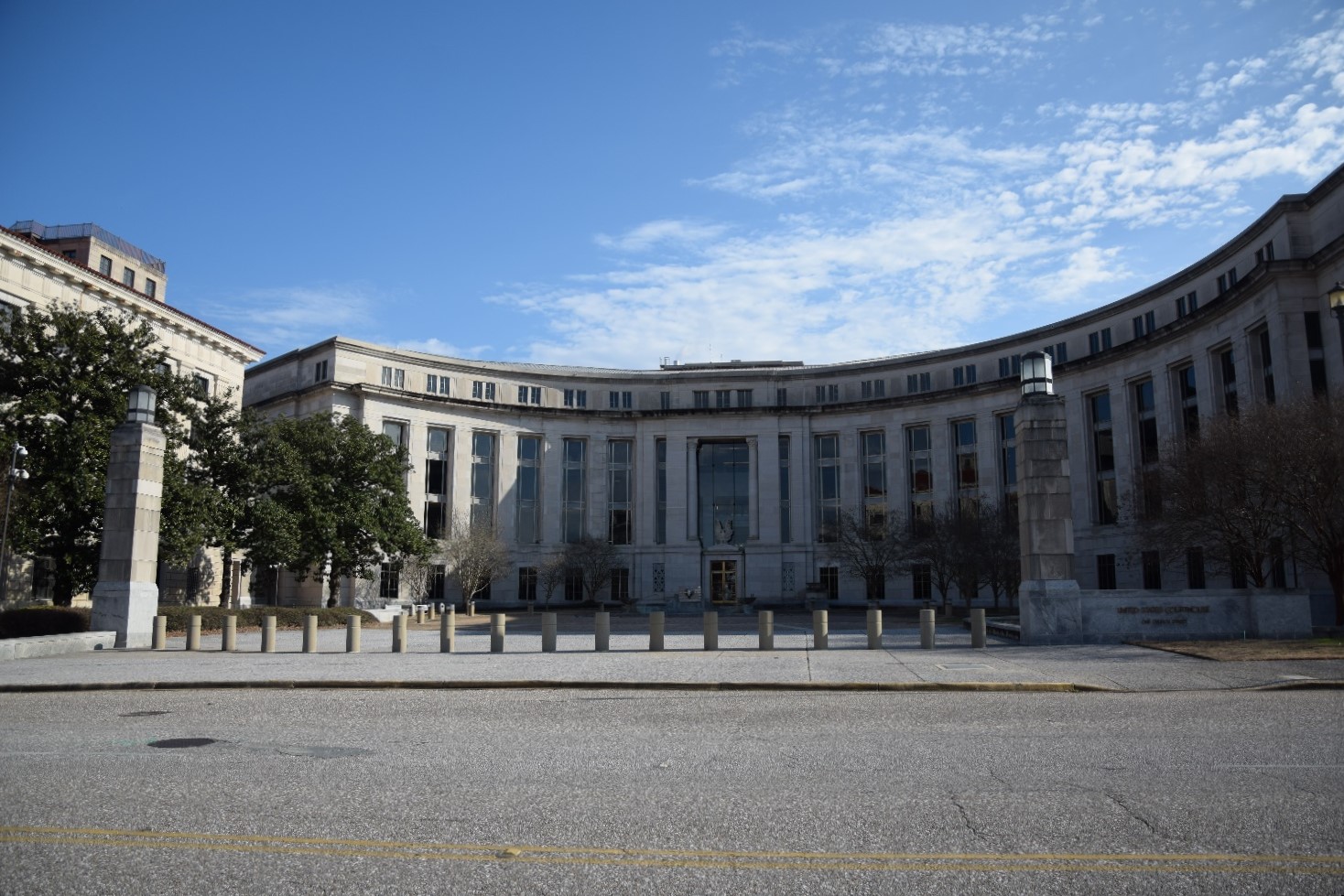
By Jemma Stephenson | MONTGOMERY, Ala. – A federal judge in Montgomery Friday ordered attorneys representing transgender families to turn over a document used to prep lawyers ahead of a hearing over alleged judge shopping.
In the 51-page filing, U.S. District Judge Liles C. Burke told the lawyers to provide the information, known as a Q&A document, to the judge for an in-camera review, to decide whether or not the document is covered by attorney-client privilege.
Burke, appointed by former President Donald Trump, has accused the attorneys for the families of trying to a get a judge that would be favorable to their case.
“This is not an ordinary civil case in which a court simply disbelieved testimony about an important fact: here, a three-judge panel was investigating whether lawyers intentionally attempted to subvert the administration of justice by judge-shopping, unanimously found that they did, unanimously disbelieved their explanations that they did not, unanimously expressed concern about their candor, and unanimously found that one lawyer lied outright,” he wrote. “If this is not enough to open the door for an in camera review of the Q&A document, it is difficult to imagine what would suffice.”
According to the Legal Information Institute, “in camera” reviews “are held in private before a judge where the press and the public are not allowed to take part.”
In May, a filing from the attorneys said that the document was an appropriate preparation for questions from a panel investigating the allegations and not under a continuing order from the panel or generated to further crime or fraud. They wrote that it should not trigger the crime-fraud exception and that if an in-camera review must take place, it should be done by a special master.
A message was left with attorney Barry Ragsdale, who according to Burke created the document and represents some of the accused attorneys. A message was also left with the attorney for Kathleen Hartnett, who according to Burke’s filing has her own attorney. The whole Walker team was formerly represented by Ragsdale, according to Burke’s filing.
The plaintiffs sued Alabama in 2022 over a law making it a felony to prescribe hormones and puberty blockers in gender-affirming care. Burke, who heard the case, initially ruled for the plaintiffs and blocked the state law. But a three-judge panel of the 11th Circuit overturned his ruling last year. The plaintiffs are seeking a full review of the decision by the circuit.
In 2022, shortly after Gov. Kay Ivey signed the restrictions on gender-affirming medical care, multiple lawsuits were filed against the law. According to an October report from a panel that investigated the charges of judge shopping, the first lawsuit in the U.S. Northern District of Alabama was originally assigned to U.S. District Judge Anna Manasco, who recused herself. The case was reassigned to Magistrate Judge Staci G. Cornelius. There was not unanimous consent for “dispositive jurisdiction” by a magistrate judge, so the court was reassigned to Judge Annemarie Carnie Axon.
The second lawsuit was filed in the U.S. Middle District of Alabama, and the attorneys marked the case as related to Corbitt v. Taylor, a 2018 case. The case was assigned to Chief Judge Emily C. Marks. The attorneys filed a motion that the case be reassigned to Judge Myron H. Thompson, who presided over Corbitt. Thompson has historically ruled for abortion and civil rights cases. They also called Thompson’s chambers.
In the report, the panel accused an attorney of having “deliberately misled” the panel about the call to Thompson’s office. In the Friday filing, Burke wrote that this “provides a stand-alone evidentiary basis for a prima facie showing of fraud on the court.”
“Put differently, the Panel’s finding (and independently, the transcripts they rely on) support a prima facie case of perjury as a ‘crime,’ but they also suffice to show a prima facie case of fraud on the court under the separate heading of ‘fraud,’” he wrote.
According to the October filing, Marks entered an order to show why the case should not be transferred to the Northern District. Lawyers from the two cases had a conference call, and the parties consented to a transfer. Then the attorneys responded to the order and withdrew their motion. Marks transferred the case and it was randomly assigned to Burke, who set a hearing date. The attorneys in the cases were going to consolidate their cases.
Axon was presiding over a criminal trial, so the first case was transferred to Burke. The state attorneys then indicated that they would not file a motion to consolidate.
Within minutes of each other, both of the lawsuits were dismissed by the attorneys. Attorneys told reporters that they were planning to refile.
Burke filed an order that included that the lawyers were giving an appearance of judge shopping. At his direction, the clerk forwarded that order to the chief judge of each district in Alabama.
A new case was filed in the U.S. Middle District and was assigned to Burke by designation.
The panelists’ October report concluded that the lawyers engaged in judge-shopping.
“The Panel is not naïve,” the panel wrote in their October report. “Lawyers sometimes consider potential judicial assignments in determining where to file a case, and there may be reasons why in certain cases some judges may be considered more favorable draws than others. So the panel does not condemn the lawyers for fretting about their chances of success before a particular judge. Of course, the irony here is that counsel ultimately succeeded before Judge Burke. But in this case, counsel did more than fret. They made plans and took steps in an attempt to manipulate the assignment of these cases.”
Since then, Burke has requested that the document be overturned and met with the accused attorneys after a recent court hearing. The panelists had asked the attorneys if they had been coached on what to say in the proceedings, and most of the lawyers said no. One lawyer, Milo Inglehart, said he had been provided the Q&A document the night before that included talking points in response to some potential questions.
The panel asked for the document to be turned over. The attorney did not do so, allegedly at the direction of Ragsdale.
“Mr. Ragsdale unilaterally decided that Mr. Inglehart could avoid producing the Q&A Document anyway—even though the Panel had just rejected counsel’s arguments that the attorney-client privilege or the work-product doctrine shielded it from disclosure—because the July 25 order exempted ‘privileged communications’ from disclosure in the respondents’ declarations,” wrote Burke in a footnote. “Even though the panel denied the request for a protective order, Mr. Inglehart nonetheless withheld the Q&A document as privileged at his counsel’s advice.”
The judge wrote that the document must be provided by 5 p.m. on Tuesday.
******************************************************************************************

Jemma Stephenson covers education as a reporter for the Alabama Reflector. She previously worked at the Montgomery Advertiser and graduated from the Columbia University Graduate School of Journalism.
******************************************************************************************
The preceding article was previously published by the Alabama Reflector and is republished with permission.
The Alabama Reflector is an independent, nonprofit news outlet dedicated to covering state government and politics in the state of Alabama. Through daily coverage and investigative journalism, The Reflector covers decision makers in Montgomery; the issues affecting Alabamians, and potential ways to move our state forward.
We’re part of States Newsroom, the nation’s largest state-focused nonprofit news organization.
U.S. Federal Courts
Club Q shooter gets life in prison for federal hate crimes
“The 2022 mass shooting at Club Q is one of the most violent crimes against the LGBTQIA+ community in history” – FBI Director Wray
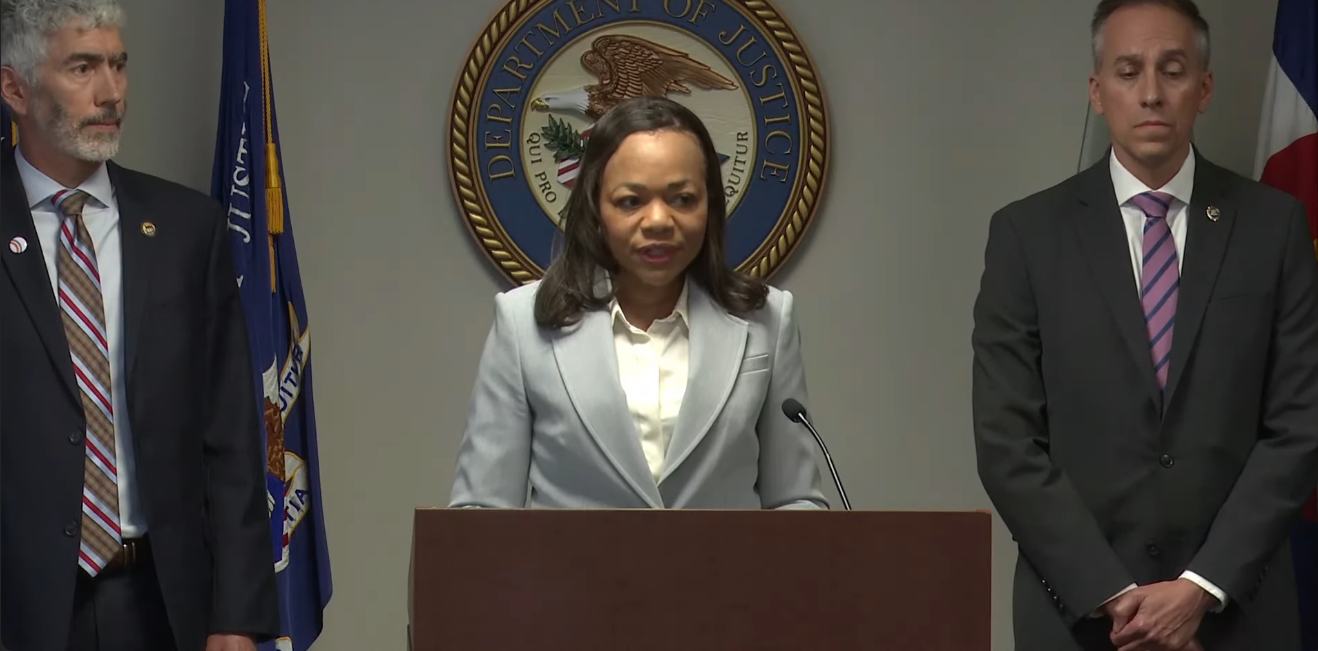
DENVER, Colo. – Anderson Lee Aldrich, 24, formerly of Colorado Springs, Colorado, was sentenced to 55 concurrent life sentences to run consecutive to 190 years in prison after pleading guilty to 74 hate crimes and firearms charges related to the Nov. 19, 2022, mass shooting at Club Q, an LGBTQ+ establishment in Colorado Springs.
According to the plea agreement, Aldrich admitted to murdering five people, injuring 19, and attempting to murder 26 more in a willful, deliberate, malicious, and premediated attack at Club Q. According to the plea, Aldrich entered Club Q armed with a loaded, privately manufactured assault weapon and began firing. Aldrich continued firing until subdued by patrons of the Club. As part of the plea, Aldrich admitted that this attack was in part motivated because of the actual or perceived sexual orientation and gender identity of any person.
“Fueled by hate, the defendant targeted members of the LGBTQIA+ community at a place that represented belonging, safety, and acceptance – stealing five people from their loved ones, injuring 19 others, and striking fear across the country,” said Attorney General Merrick B. Garland. “Today’s sentencing makes clear that the Justice Department is committed to protecting the right of every person in this country to live free from the fear that they will be targeted by hate-fueled violence or discrimination based on who they are or who they love. I am grateful to every agent, prosecutor, and staff member across the Department – from the U.S. Attorney’s Office for the District of Colorado, to the Civil Rights Division, the ATF, and FBI – for their work on this case. The Justice Department will never stop working to defend the safety and civil rights of all people in our country.”
“The 2022 mass shooting at Club Q is one of the most violent crimes against the LGBTQIA+ community in history,” said FBI Director Christopher Wray. “The FBI and our partners have worked tirelessly towards this sentencing, but the true heroes are the patrons of the Club who selflessly acted to subdue the defendant. This Pride Month and every month, the FBI stands with the survivors, victims, and families of homophobic violence and hate.”
“ATF will not rest until perpetrators like this defendant are prosecuted to the fullest extent of the law,” said Director Steven Dettelbach of the Bureau of Alcohol, Tobacco, Firearms and Explosives (ATF). “I hope today’s life sentence brings at least some peace to the victims and survivors of this senseless, horrific tragedy. That this sentence should come during Pride month reinforces how far we have left to go before all communities, including all LGBTQIA+ communities, are safe here. It also shows how far ATF and all our partners will go to ensure hatred does not win.”
“The defendant’s mass shooting and heinous targeting of Club Q is one of the most devastating assaults on the LGBTQIA+ community in our nation’s history. This sentence cannot reclaim the lives lost or undo the harms inflicted. But we hope that it provides the survivors, the victims’ families, and their communities a small measure of justice,” said Assistant Attorney General Kristen Clarke of the Justice Department’s Civil Rights Division. “Our message today should be loud and clear. No one should have to fear for their life or their safety because of their gender identity or sexual orientation. The Justice Department will vigorously investigate and prosecute those who perpetrate hate-fueled, bias-driven attacks.”
“Hate has no place in our country and no place in Colorado” said Acting U.S. Attorney Matt Kirsch for the District of Colorado. “I hope that today’s sentence demonstrates to the victims and those connected to this horrific event that we do not tolerate these heinous acts of violence.”
The FBI Denver Field Office, Colorado Springs Police Department, and ATF investigated the case.
Assistant U.S. Attorneys Alison Connaughty and Bryan Fields for the District of Colorado and Trial Attorney Maura White of the Justice Department’s Civil Rights Division prosecuted the case.
Related:
U.S. Federal Courts
Appeals Court overturns Okla. anti-Trans birth certificate policy
The U.S. District Court dismissed the complaint in June 2023, and Lambda Legal appealed the decision to the Tenth Circuit Court of Appeals

DENVER, Colo. – The U.S. Court of Appeals for the Tenth Circuit overturned a lower court ruling that had dismissed a lawsuit challenging Oklahoma Governor Kevin Stitt’s anti-trans birth certificate policy, which categorically prohibits transgender people from correcting the gender marker on their birth certificates to match their gender identity.
All three members of the panel agreed that the lawsuit stated a valid claim of unconstitutional discrimination against transgender people and that the government’s justifications for this discrimination were irrational.
The court explained the Constitution requires that “there must be some rational connection between the Policy and a legitimate interest. There is no rational connection here—the Policy is in search of a purpose.” A majority of the court also held that any government discrimination against transgender people triggers heightened judicial scrutiny.
“This ruling stands as a monumental win for the transgender community in Oklahoma and nationwide, sending a clear message to lawmakers everywhere that unconstitutional discrimination against transgender people will not be tolerated by the courts,” said Lambda Legal Senior Counsel Peter Renn. “This ruling comes at a critical time amidst a surge in anti-transgender policies of all stripes across the country. That includes attempts, like the one here, to roll back the basic ability of transgender people to correct their identity documents to match who they are, which can expose them to harassment, abuse, and physical danger.”
On November 8, 2021, Oklahoma Gov. Kevin Stitt issued an executive order that reversed the Oklahoma State Department of Health’s (OSDH) prior practice of allowing transgender people to correct their birth certificates to match their gender identity, which had existed for at least 14 years from 1997-2021.
Governor Stitt explained, “I believe that people are created by God to be male or female. Period,” and vowing to take “whatever action necessary to protect Oklahoma values and our way of life.” Previously, transgender people could correct their birth certificates by presenting a court order to OSDH, but following the executive order, OSDH has refused to comply with such orders.
Lambda Legal joined by Tulsa attorney Karen Keith Wilkens filed a lawsuit in U.S. District Court for the Northern District of Oklahoma on March 14, 2022 challenging the Oklahoma Republican Governor’s executive order.
The U.S. District Court dismissed the complaint in June 2023, and Lambda Legal appealed the decision to the Tenth Circuit Court of Appeals.
U.S. Federal Courts
Doctor charged: Unauthorized access to personal info of trans kids
If convicted, Dr. Haim faces up to 10 years in federal prison and a $250,000 maximum possible fine for his actions
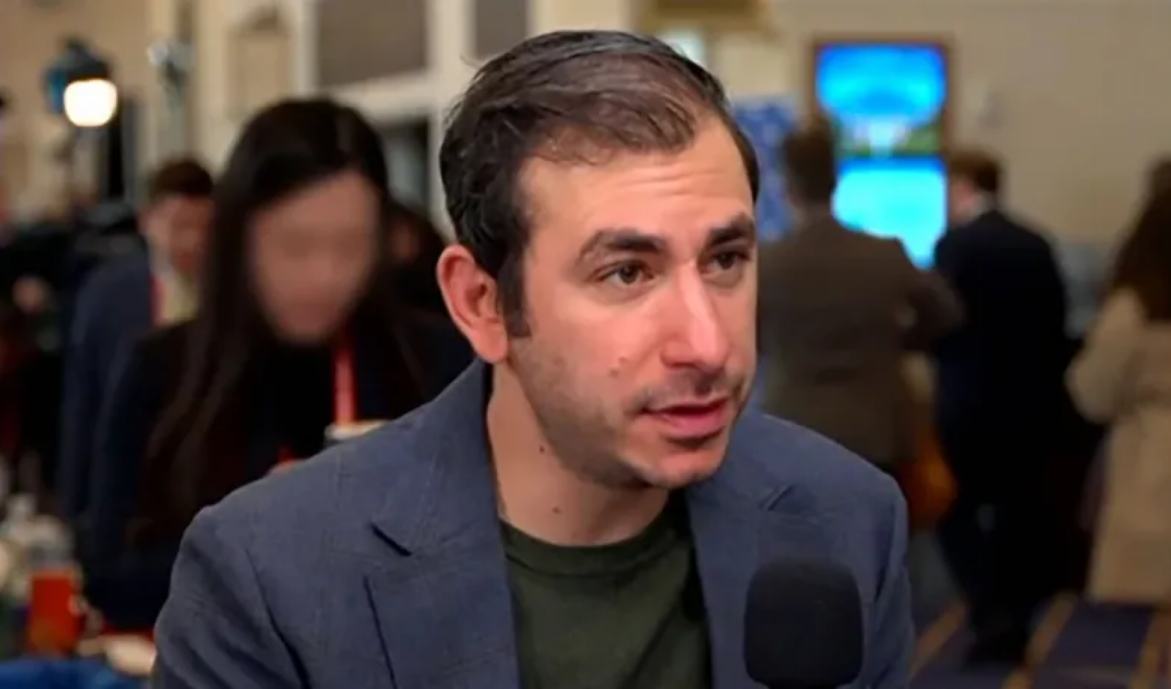
HOUSTON – A Houston doctor has been indicted for obtaining protected individual health information for patients that were not under his care and without authorization, announced Alamdar S. Hamdani, the United States attorney for the Southern District of Texas.
The case against Ethan Haim, 34, Dallas, has now been unsealed, and he is set to make his initial appearance before U.S. Magistrate Yvonne Y. Ho in Houston.
The four-count indictment alleges Haim obtained personal information including patient names, treatment codes and the attending physician from Texas Children’s Hospital’s (TCH) electronic system without authorization. He allegedly obtained this information under false pretenses and with intent to cause malicious harm to TCH.
According to the indictment, Haim was a resident at Baylor College of Medicine and had previous rotations at TCH as part of his residency.
In April 2023, Haim allegedly requested to re-activate his login access at TCH to access pediatric patients not under his care. The indictment alleges he obtained unauthorized access to personal information of pediatric patients under false pretenses and later disclosed it to a media contact.
According to Houston’s CBS News affiliate KHOU-TV 11, shortly after Haim allegedly accessed the records, Texas Attorney General Ken Paxton announced he was launching an investigation into Texas Children’s Hospital to find out whether they are “actively engaging in illegal behavior and performing gender transitioning procedures on children.
Calling himself a ‘whistleblower’ last year as the FBI conducted the investigation, he tweeted a request for funding to support his legal defense:
I blew the whistle on @TexasChildrens secret sex change program and the @TheJusticeDept came after me for exposing the truth. After experiencing DOJ corruption we've decided to fight back. If you want to join the fight, donate below. https://t.co/ZMhL9LG3o1
— Eithan Haim MD (@EithanHaim) March 10, 2024
If convicted, Haim faces up to 10 years in federal prison and a $250,000 maximum possible fine.
-

 Breaking News1 day ago
Breaking News1 day agoMajor victory for LGBTQ funding in LA County
-

 Features1 day ago
Features1 day agoKoaty & Sumner: Finding love in the adult industry
-

 a&e features4 days ago
a&e features4 days agoLatina Turner comes to Bring It To Brunch
-

 Books3 days ago
Books3 days agoTwo new books on dining out LGBTQ-style
-

 Television5 days ago
Television5 days ago‘White Lotus,’ ‘Severance,’ ‘Andor’ lead Dorian TV Awards noms
-

 Miscellaneous14 hours ago
Miscellaneous14 hours agoCan you really find true love in LA? Insights from a queer matchmaker
-

 El Salvador2 days ago
El Salvador2 days agoLa marcha LGBTQ+ desafía el silencio en El Salvador
-

 Arts & Entertainment15 hours ago
Arts & Entertainment15 hours agoIntuitive Shana gives us her hot take for July’s tarot reading



